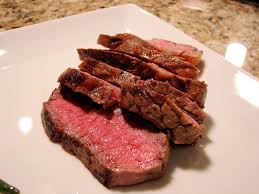Trust the experts. Believe in science. These are literal mantras that are in the air today. But I have to be frank and admit that I do not trust the experts on everything. If I have a lump in my testicle, I’ll trust the experts. But when it comes to rare events, the experts seem to suffer from some biases. When it comes to COVID-19 I’m very skeptical of experts. The reason I’m skeptical of experts is many of them didn’t anticipate the coming pandemic when they really should have.
Looking back at my record, it’s mixed. I spent much of the second half of January trying to get my wife to stop telling me COVID horror stories, as she was tracking Wuhan-related social media. Looking at the evidence we did have on hand, it looked scary. But, previous worries had been unfounded, and the idea that the pandemic would get out of control was not something I could rationally refute, but it was something I really wished would just go away.

I remember February 19th, because that was when COVID-19 broke out in Iran, and I flipped my shit. I nearly didn’t go to the lunch appointment I had the next day. I couldn’t hope that there was something special about China that made it vulnerable anymore. The pandemic was going to happen, I was 100% sure then. I was very angry when Donald Trump visited India on the 24th and 25th. On the 24th my friend Default Friend asked if she should be worried, and I admitted my hysterical level of alarm (many scientists have privately messaged me and said that this was their wake-up call, as they were prompted to do research after my public alarmism).
Where were the experts? Well, I can’t survey them, but Stat News has done a great job covering COVID-19. I used the Wayback Machine to look at its front page all through February. On the following dates, COVID-19 was not their prime feature story: 3, 6, 7, 8, 10, 11, 12, 15, 19, 20, 24, 25, 26. After the 19th, when major figures in Iran seem to have caught COVID-19, I have no understanding why Stat did not pivot in totality to COVID-19.
The point is that when it comes to your own health you should keep your own counsel. Many of the public health experts were relatively sanguine deep into February. They excused Black Lives Matter protesters because of ideological affinity. They were against masks before they were for them. They talked about how border controls don’t work, but later admitted they had just asserted something they wanted to be true (?). These are people who I don’t trust because they show that their concern is not with facts, but outcomes. Social outcomes.


